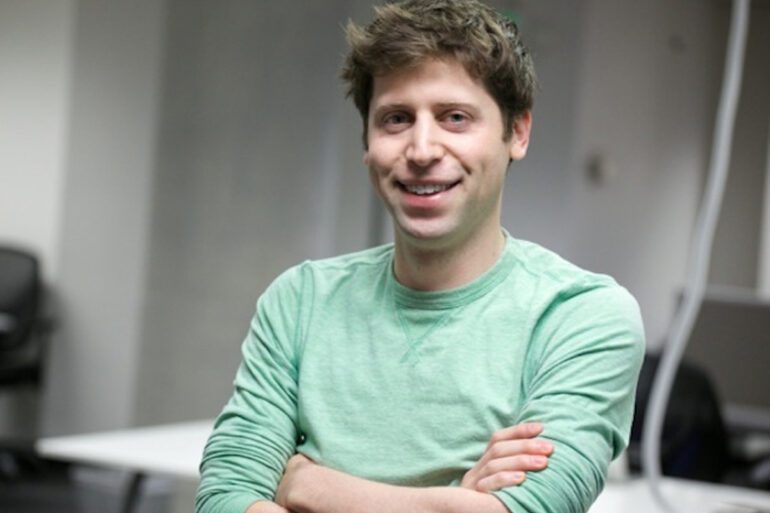TL;DR:
- OpenAI’s CEO, Sam Altman, reverses earlier threats and affirms that OpenAI has no plans to leave Europe.
- Altman expresses excitement to continue operating in the region and engage in discussions on AI regulation.
- OpenAI faces criticism for not disclosing training data for its latest AI model, GPT-4.
- EU lawmakers propose new measures requiring companies using generative tools like ChatGPT to disclose copyrighted material used in training.
- EU parliamentarians approve the draft of the AI Act, with final details to be determined later this year.
- OpenAI emphasizes transparency and collaborates with regulators to shape responsible AI development.
- OpenAI’s decision to stay in Europe demonstrates its commitment to compliance and engagement with stakeholders.
- European regulators seek to strike a balance between innovation and governance in the AI industry.
Main AI News:
OpenAI’s CEO, Sam Altman, has made a decisive reversal on the company’s earlier threat to leave Europe. On Friday, Altman took to Twitter to express OpenAI’s commitment to continuing its operations in the region, dispelling concerns that arose from his earlier remarks regarding the challenges posed by upcoming laws on artificial intelligence (AI). Altman’s statement comes as the European Union (EU) works diligently to establish comprehensive regulations governing AI, potentially making them the first global authority in this domain.
Altman had previously criticized the current draft of the EU AI Act, citing excessive regulation. However, following a week-long series of meetings with influential politicians across Europe, Altman described his tour as a “very productive week of conversations in Europe about how to best regulate AI!” This change in stance highlights OpenAI’s dedication to engaging with European stakeholders and actively shaping the future of AI development.
OpenAI’s initial threat had drawn criticism from Thierry Breton, the EU industry chief, and numerous lawmakers. However, Altman’s latest statement clarifies the company’s intentions and demonstrates a willingness to collaborate with regulators to strike the right balance between innovation and governance.
In addition to regulatory concerns, OpenAI has faced scrutiny for its reluctance to disclose training data for its latest AI model, GPT-4. The company has cited both competitive considerations and safety implications as reasons for its decision. To address these concerns, EU lawmakers have proposed new measures that would mandate companies utilizing generative tools, such as OpenAI’s ChatGPT, to disclose copyrighted material used in their AI training.
Transparency lies at the heart of these proposals, with Dragos Tudorache, a leading member of the European Parliament, stating, “These provisions relate mainly to transparency, which ensures the AI and the company building it are trustworthy.” By emphasizing the importance of transparency, EU regulators aim to foster trust and accountability in the AI industry.
The AI Act draft has already received approval from EU parliamentarians earlier this month. Over the coming months, member states, the European Commission, and Parliament will collaborate to finalize the details of the bill. It is expected that this collaborative effort will yield comprehensive guidelines for governing AI systems in Europe.
OpenAI’s AI-powered chatbot, ChatGPT, developed in partnership with Microsoft, has played a significant role in revolutionizing AI capabilities. However, concerns about the potential implications of AI have created both excitement and alarm, leading to conflicts between industry players and regulators. In response to Altman’s recent tweet, Dutch MEP Kim van Sparrentak, an active contributor to the AI draft rules, emphasized the importance of maintaining clear obligations on transparency, security, and environmental standards for tech companies. She stressed that voluntary codes of conduct are insufficient for ensuring responsible AI development in Europe.
OpenAI’s relationship with European regulators first encountered obstacles in March, when the Italian data regulator, Garante, temporarily shut down ChatGPT due to alleged violations of European privacy rules. However, the app was swiftly reinstated after OpenAI implemented new privacy measures to address the concerns raised.
German MEP Sergey Lagodinsky, who has also contributed to the AI Act draft, expressed relief at Altman’s commitment, stating, “I’m happy to hear we don’t have to talk the language of threats and ultimatums.” Lagodinsky emphasized the common challenges faced by all stakeholders and highlighted the European Parliament’s commitment to collaborating with the AI industry rather than being seen as an adversary.
To promote further dialogue and democratic decision-making surrounding AI systems, OpenAI recently announced the allocation of 10 grants worth $1 million in total to fund experiments focused on determining the appropriate governance of AI software. Altman described these grants as instrumental in shaping the democratic future of AI.
Conlcusion:
OpenAI’s commitment to remaining in Europe and actively participating in AI regulation discussions signifies a willingness to collaborate with policymakers and shape responsible AI development. This decision fosters transparency and accountability, aligning with the EU’s vision of ensuring trustworthy AI systems. It reflects a market that acknowledges the importance of regulatory frameworks in balancing innovation with ethical considerations, paving the way for the responsible growth of the AI industry in Europe.

